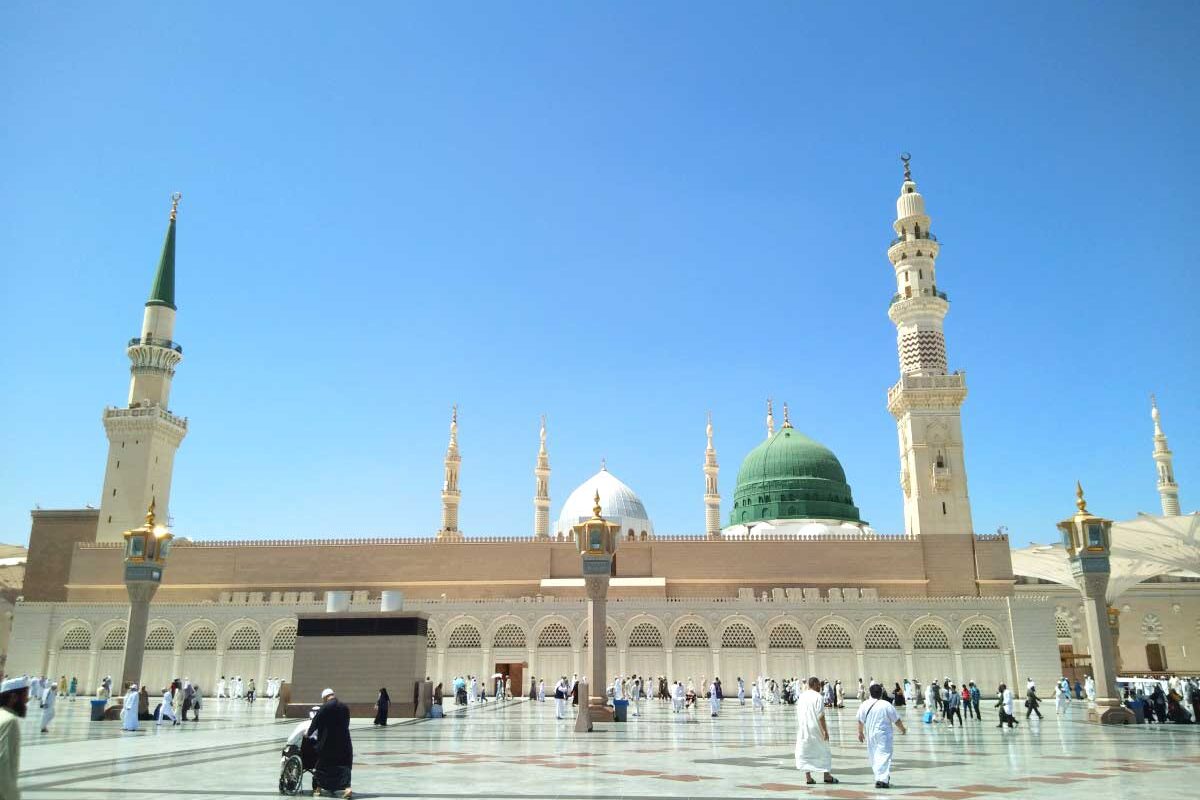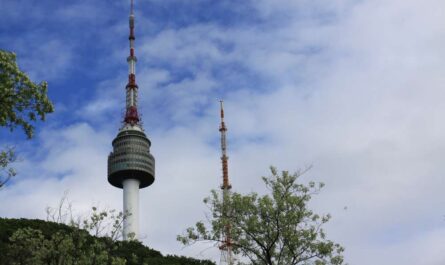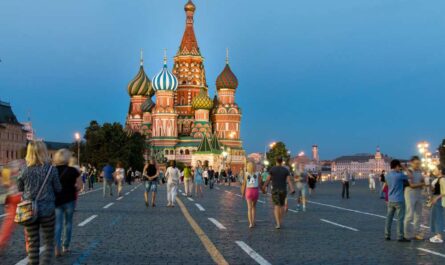Cool, fun, awesome, and interesting facts about Saudi Arabia will let you know about this country. Saudi Arabia, stretching across much of the vast northern and central expanse of the Arabian Peninsula, stands as a juxtaposition of youthful nationhood against the backdrop of an ancient past steeped in significance. The region of Hejaz, nestled amidst the rugged western highlands along the shimmering shores of the Red Sea, holds profound religious import as the cradle of Islam. Here, amidst its rugged terrain, lie the sacred cities of Mecca and Medina, revered by millions of Muslims worldwide. Meanwhile, the heart of the kingdom, known as Najd, meaning “Highland,” unfolds as a vast expanse of arid desert that until recent times harbored nomadic tribes, each with its own rich tapestry of traditions and customs.
Interesting Facts about Saudi Arabia
Nestled within the geographic core of Saudi Arabia, Najd paints a picture of cultural dynamism, shaped by the nomadic lifestyles of its inhabitants. Here, traditions run deep, intertwining with the very fabric of daily life. The nomads, once the custodians of vast stretches of land, now find themselves at the crossroads of modernity and tradition. Yet, their enduring spirit and rich heritage continue to leave an indelible mark on the nation’s identity. Here are some interesting facts about Saudi Arabia:
1. The Vast Expanse of Sand: Rub Al-Khali
Stretching across the southern reaches of Saudi Arabia lies the Rub Al-Khali, a vast expanse of desert that stands as the world’s largest sand desert. Known colloquially as the “Empty Quarter,” this formidable landscape is characterized by towering dunes, barren plains, and shifting sands that stretch endlessly into the horizon. Amidst the harsh beauty of the Rub Al-Khali, nature reveals its raw power and unforgiving majesty, shaping an otherworldly landscape that has captivated explorers and adventurers for centuries. From the scorching heat of the day to the chilling embrace of the night, the Rub Al-Khali stands as a testament to the timeless allure and indomitable spirit of the desert.
2. The Emergence of Modern Saudi Arabia
Saudi Arabia’s transformation into a modern nation can be traced back to the rise of the Saud dynasty (Al Saud) in the early twentieth century. This dynasty, hailing from the Najd region, which gives the country its name, played a pivotal role in shaping its identity. At the heart of this transformation was the philosophy of Wahhabism, an austere interpretation of Islam that was embraced by early leaders of the Saud family and later established as the official doctrine of the nation. Wahhabism not only influenced religious practices but also had profound implications for the socio-political landscape of Saudi Arabia.
3. The Influence of Wahhabism
Wahhabism, characterized by its strict adherence to Islamic principles, became the cornerstone of Saudi Arabia’s religious and cultural identity. The adoption of Wahhabism by the Saud dynasty not only bolstered its authority but also laid the groundwork for the nation’s prosperity. Under this doctrine, the practice of Islam was regulated with precision, shaping various aspects of daily life, including governance, education, and social interactions. The impact of Wahhabism extended beyond the borders of Saudi Arabia, shaping perceptions of the nation on the global stage.
4. Complex Cultural Dynamics
Saudi Arabia’s cultural landscape is deeply intertwined with religious conservatism and tribalism, presenting a complex tapestry for outsiders to navigate. The influence of Wahhabism permeates every aspect of society, dictating norms and values that may seem unfamiliar to those outside the kingdom. Moreover, the prevalence of tribalism adds another layer of intricacy, as rival family groupings vie for power and influence. This interplay between religious conservatism and tribal allegiances contributes to the enigmatic nature of Saudi culture, making it a challenge for external observers to fully comprehend.
5. Navigating Saudi Society
For those seeking to understand Saudi Arabia, delving into its rich tapestry of culture and history is essential. Beyond the facade of religious conservatism and tribal rivalries lies a nation with a diverse heritage and a complex identity. By exploring the nuances of Wahhabism, tribal dynamics, and historical narratives, one can begin to unravel the mysteries of Saudi society. However, such an endeavor requires patience, open-mindedness, and a willingness to engage with perspectives that may diverge from one’s own. Only through a holistic understanding of its multifaceted landscape can one truly appreciate the richness and diversity of Saudi Arabia.
6. Borders and Boundaries: Saudi Arabia’s Geopolitical Landscape
Nestled at the crossroads of the Middle East, Saudi Arabia shares its borders with a diverse array of neighboring countries. To the north, it is flanked by Jordan, Iraq, and Kuwait, while to the south, it is bordered by Yemen and Oman. To the east, the United Arab Emirates, Qatar, and Bahrain form its eastern boundary. This strategic positioning places Saudi Arabia at the nexus of regional geopolitics, shaping its relationships and interactions with neighboring nations and influencing its role on the global stage.
7. Population Dynamics: Saudi Arabia’s Growing Demography
As of 2024, Saudi Arabia boasts a population of 37,473,929, with a growth rate of 1.43%. Amidst the dynamic tapestry of Saudi society, this steady population growth reflects the nation’s evolving demographic landscape and burgeoning urbanization. From the bustling metropolises of Riyadh and Jeddah to the remote villages nestled amidst desert oases, Saudi Arabia’s population embodies a rich tapestry of cultural diversity and ethnic heritage, shaping the nation’s identity and trajectory in the 21st century.
8. The Architect of Modern Saudi Arabia: King Ibn Saud
At the helm of Saudi Arabia’s journey into the modern era stands King Ibn Saud, a visionary leader whose indomitable spirit and strategic acumen shaped the destiny of a nation. Born in 1882, Ibn Saud embarked on a historic campaign to unify the disparate regions of the Arabian Peninsula under a single banner. Beginning in 1902 with the capture of Riyadh, the ancestral stronghold of his family, the House of Saud, Ibn Saud waged a series of triumphant conquests that culminated in the formation of the Kingdom of Saudi Arabia. Through his leadership and military prowess, Ibn Saud laid the foundation for a unified and sovereign state, leaving an indelible mark on the history and identity of Saudi Arabia.
9. Prohibitions and Taboos: Alcohol and Pork in Saudi Arabia
In the conservative cultural landscape of Saudi Arabia, strict adherence to Islamic principles extends to dietary habits and consumption norms. It is forbidden to consume or import alcohol or pork products within the kingdom, in accordance with Islamic law. These prohibitions reflect the nation’s unwavering commitment to upholding religious and moral values, preserving the sanctity of Islamic teachings in all aspects of daily life. Despite the prevalence of these restrictions, Saudi Arabia remains a land of culinary diversity, with traditional Arabian cuisine and halal alternatives offering a rich tapestry of flavors and gastronomic experiences.

10. The Ultimate Sentence: Death Penalty in Saudi Arabia
Within the legal framework of Saudi Arabia, the death penalty looms as the ultimate form of punishment, reserved for the most serious crimes. In 2015, this penalty was enforced with alarming frequency, with one person executed every other day. While the specifics of each case vary, the imposition of the death penalty underscores the nation’s commitment to maintaining law and order and upholding the principles of justice and deterrence. However, the practice has drawn scrutiny from international observers and human rights advocates, who raise concerns about due process and the potential for miscarriages of justice in the application of capital punishment.
11. A Kingdom of Vast Dimensions
Encompassing a sprawling expanse of 829,996 square miles (2,149,690 square kilometers), the Kingdom of Saudi Arabia (KSA) stands as a testament to the sheer magnitude of its territorial reach. From the windswept dunes of the Rub Al-Khali to the craggy peaks of the Asir Mountains, Saudi Arabia’s diverse landscape reflects the rich tapestry of natural wonders that define the Arabian Peninsula. Within this expansive realm, a multitude of cultures, traditions, and ecosystems converge, shaping the nation’s identity and influencing its place on the global stage.
12. Religious Conservatism: Prohibiting Non-Muslim Holidays
In the conservative cultural milieu of Saudi Arabia, adherence to Islamic principles extends to the realm of public holidays and celebrations. Non-Muslim holidays, including Christmas, are strictly prohibited, and the importation of Christmas decorations is likewise forbidden. This stringent stance reflects the nation’s unwavering commitment to upholding Islamic values and preserving the sanctity of religious traditions within its borders, even as it navigates its place in an increasingly interconnected world.
13. Commemorating Monarchy: Saudi National Day
On September 23, 1932, King Abdulaziz Al Saud laid the foundation for modern Saudi Arabia, establishing the kingdom as a monarchy and ushering in a new era of nationhood and sovereignty. Each year, on the anniversary of this historic occasion, Saudi Arabia commemorates its National Day, celebrating the enduring legacy of its founding monarch and the remarkable journey of its people. In 2020, the kingdom will mark its 90th Saudi National Day, a momentous milestone that serves as a testament to Saudi Arabia’s resilience, unity, and unwavering commitment to progress and prosperity.
14. Religious Exclusivity: No Non-Muslim Places of Worship
In Saudi Arabia, the construction of non-Muslim places of worship is strictly forbidden by law, resulting in the absence of churches, temples, or any other religious structures dedicated to faiths other than Islam. This prohibition reflects the kingdom’s adherence to strict interpretations of Islamic law and its commitment to maintaining Islam as the sole authorized religion within its borders. While Saudi Arabia embraces cultural diversity and hosts a diverse expatriate population, the absence of non-Muslim places of worship underscores the nation’s unwavering dedication to preserving its Islamic identity and upholding religious uniformity.
15. Urban Nexus: Riyadh, the Capital Metropolis
As the vibrant heart of Saudi Arabia, Riyadh stands as a beacon of modernity and progress, serving as both the capital and the largest city in the kingdom. In 2011, Riyadh boasted a population of 5.451 million people, representing a bustling nexus of commerce, culture, and governance. From gleaming skyscrapers to bustling marketplaces, Riyadh embodies the dynamic spirit of Saudi Arabia, attracting residents and visitors alike with its cosmopolitan charm and entrepreneurial zeal.
16. Cultural Transformation through Modernization
The influx of millions of foreign workers and the integration of hundreds of thousands of Saudis into non-traditional vocations have catalyzed a profound transformation in Saudi Arabia’s societal fabric, blending modern production techniques with age-old cultural norms. This fusion yields an intriguing tapestry of tradition and innovation, enriching the cultural landscape with diverse influences. Moreover, a significant contingent of Saudi students has pursued education abroad, with a predominant preference for the United States, fostering cross-cultural exchanges and intellectual enrichment on a global scale.
17. Evolution of Transportation and Communication
The evolution of transportation and communication infrastructures has been pivotal in reshaping the Saudi societal dynamics. Highways and air travel have eclipsed conventional modes of mobility, knitting disparate regions together and facilitating unprecedented connectivity. Simultaneously, the proliferation of television, radio, and Internet technologies has emerged as ubiquitous channels for disseminating information, bridging geographical divides, and serving as platforms for cultural exchange and educational outreach.
18. Impact on Societal Dynamics
This wave of modernization has reverberated across various facets of Saudi society, intricately influencing its economic, social, and cultural dimensions. The integration of foreign labor and the diversification of employment avenues have engendered a multifaceted workforce, fostering a climate of innovation and adaptability. Concurrently, the exposure to global educational paradigms and media platforms has catalyzed shifts in societal norms, fostering an environment ripe for cross-cultural dialogue and knowledge exchange. How AI, ChatGPT maximizes earnings of many people in minutes
19. Cultural Synthesis and Global Connectivity
The convergence of traditional Saudi values with modern influences underscores a nuanced synthesis, where heritage coexists harmoniously with contemporary advancements. This interplay enriches the national identity, infusing it with resilience and dynamism amidst the currents of globalization. Furthermore, the interconnectedness facilitated by modern communication technologies amplifies Saudi Arabia’s presence on the global stage, fostering reciprocal exchanges and fostering mutual understanding among diverse cultures. Motivation – Mind – Success – Thinking – Productivity – Happiness
20. The Nexus of Tradition and Innovation
In essence, the intersection of tradition and innovation in Saudi Arabia represents a rich tapestry of cultural evolution, where the echoes of the past resonate alongside the strides towards progress. This synthesis, woven intricately through the fabric of society, embodies the resilience and adaptability of the Saudi people in navigating the complexities of a rapidly changing world. As the nation continues its journey of development, it does so with a steadfast commitment to preserving its heritage while embracing the opportunities that modernization affords. Business – Money Making – Marketing – E-commerce
21. Centers of Cultural and Religious Significance
Beyond Riyadh, Saudi Arabia is home to several major cities that hold cultural and religious significance. Jeddah, with its population of 3.578 million people, serves as a vibrant coastal hub, renowned for its historic architecture and bustling port. Meanwhile, Makkah, also known as Mecca, holds a special place in the hearts of Muslims worldwide, with a population of 1.591 million people. As the holiest city in Islam, Makkah welcomes millions of pilgrims each year to perform the sacred Hajj and Umrah pilgrimages, serving as a spiritual epicenter and a symbol of unity for the global Muslim community. Health books, guides, exercises, habits, Diets, and more

22. Cultural Conservatism: Enforcing Dress Codes and Gender Segregation
In Saudi Arabia, adherence to strict dress codes and the segregation of genders are rigorously enforced as part of the nation’s cultural and religious norms. Dress standards dictate modest attire for both men and women, with regulations requiring the covering of the body and head for women and modest clothing for men. Furthermore, strict separation of men and women is observed in public spaces, with rules prohibiting premarital sex and imposing restrictions on interactions between unrelated men and women. Even mundane tasks like reserving a hotel room require proof of familial relation or shared surnames to ensure compliance with societal norms. Additionally, prayer holds a paramount significance, with devout Muslims observing five prayer sessions each day, leading to temporary closures of stores and businesses during these times to accommodate religious practices. Fitness – Meditation – Diet – Weight Loss – Healthy Living – Yoga
23. International Communication: Dialing Codes for Saudi Arabia
For those seeking to connect with their Saudi Arabian relatives from abroad, the international dialing code for Saudi Arabia is +966. This code is essential for initiating international calls to reach friends, family, or business contacts within the kingdom, facilitating seamless communication across geographical boundaries and fostering connections with loved ones despite distances. RPM 3.0 – 60% CONVERSION & Money for Affiliate Marketing
24. Water Sustainability: Desalination and Reservoirs
In a region characterized by arid climates and limited freshwater resources, Saudi Arabia relies heavily on desalination plants and underground reservoirs to meet its freshwater needs. These technological advancements play a critical role in ensuring water sustainability and addressing the challenges posed by water scarcity in the kingdom. Through innovative desalination processes and strategic management of underground reservoirs, Saudi Arabia endeavors to secure a stable and reliable supply of freshwater for its growing population and burgeoning industries, underscoring the nation’s commitment to environmental stewardship and resource management.
We believe you have enjoyed these interesting facts about Saudi Arabia!
More Interesting Articles
- 100 Interesting Facts about Sudan – Struggle and Hope
- 100 Interesting Facts About The Philippines
- 50 Fun Facts about Cameroon for Inquisitive Learners
- 125 Fun Facts about Malaysia for Curious Minds
- 150 Interesting Facts about Ireland for Travelers
- 200 Interesting Facts about Spain for Everyone
- 200 Interesting Facts about Austria – Past, and Present
- 200 Interesting Facts about Denmark
- 100 Interesting Facts about Ethiopia, Africa
- 40 Interesting Facts about New Zealand
- 100 Interesting Facts about Mongolia – Glory and Conquer
- 100 Interesting Facts about Taiwan – Past, and Present
- 100 Interesting Facts about Russia – Past to Present
- Country Currency List – International Currencies | Currency Codes
- List of Countries and Their Flags – All Flags of the World
- World International Days List United Nations UN 2021
- International Calling Codes – Country Phone Codes List
- 150 Interesting Facts about Sydney Australia
- 100 Fun Facts about Greece from Past to Present
- 100 Interesting Facts to Know About Hawaii Island



